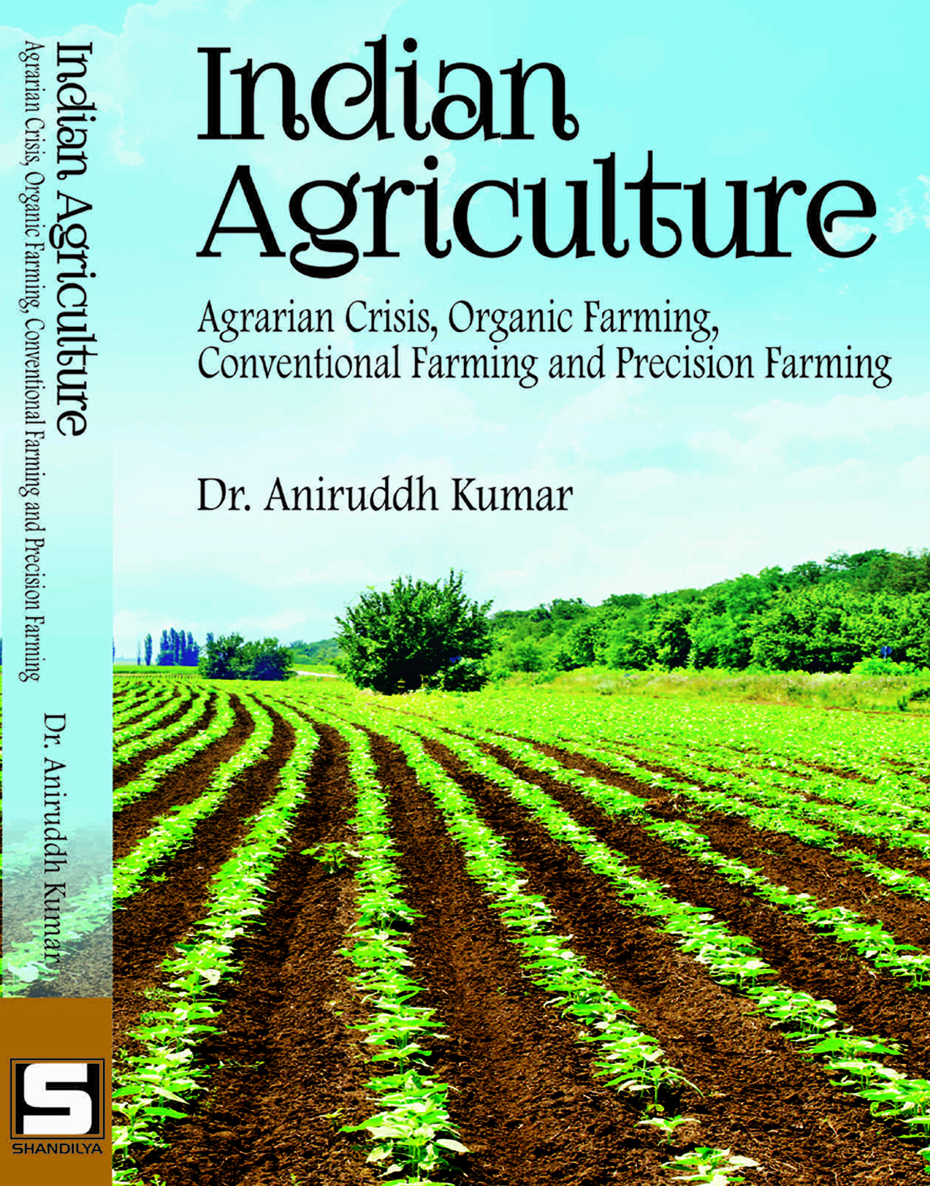Categories of the Books
- 2025
- Biography
- Science
- Sociology
- 2024
- Women Studies
- 2023
- 2022
- 2021
- 2020
- 2019
- 2018
- 2017
- Dr. Debesh Bhowmik
- Agriculture
- Banking
- Covid-19
- Dalits
- Economics
- Education
- Education & Gender
- Environment
- Finance
- Hindi
- History
- Human Rights
- Gandhian Studies
- GST
- Geography
- Insurance
- Law
- Literature
- Migration
- Military Studies
- Military Law
- Mass Media
- Commerce
- Management
- New Books
- NREGA
- Public Administration
- Politics
- Share Market
- Social Work
- Tourism
- Tribes
- Women & Children Studies
- Forthcoming
- Uncategorized
Book & Detail
Indian Agriculture
-

Author : Ed.: Aniruddh Kumar Year of Publication : 2017 ISBN : 9788193472576 Language : English Binding : Hard Bound Pages : 308 Size : 23 cms Categories : 2017, Agriculture, Economics Price : 850
FREE HOME DELIVERY
About the Book :
Agriculture in India remains the mainstay because 58 percent of its population depends for their livelihood; so, agriculture is not only the source of food and employment but it is the way of life.Various problems concerning agriculture should be given proper attention in any scheme of economic development of our country. Though their deeper implications have been fully realized, yet they have not been viewed in proper perspective and particularly in relation to policies and programmes for overcoming the agrarian crisis and farming system prevailing since a pretty long period of time. It is rather unfortunate that six decades of planning have not been able to bring a breakthrough in agriculture sector where there is a vicious circle of poverty of the vast majority of our agricultural population.
This book is a compilation of different discerning view of many authors which will be beneficial to learners. An attempt has been made to focus attention on issues and to point out with the help of facts and figures which would form the basis for future plans for the agricultural development of the country. This book will depict outlines, the direction in which future agro-economic development should take place. More emphasis has been given on the priorities of organic and precision farming in India for obtaining the maximum production with minimum expenditure of resources and proportionate investment or inputs. The crisis of Indian agriculture can be removed by changing the conventional or traditional farming by adopting organic and precision farming.
Contents : Agrarian Crisis, Farmers’ Indebtedness and Priority Sector Lending to Agriculture Sector in India; Extent of Agrarian Crisis in Punjab; Agriculture Crisis and Farmers’ Indebtedness; Organic Farming and Climate-Smart Agriculture; Organic Farming and Sustainable Economic Development; Organic Farming Promoted by Women; Organic Farming in India and Tamil Nadu; Organic Farming in India; Organic Farming in India; Organic Farming : Farmers Perception and Present Efforts in Bihar; Grapes Production through Organic and Inorganic Method; Role of Farmers in Popularizing Organic Farming and Conservation of Traditional Crop Varieties; Organic Farming : A Step Ahead of Conventional Farming; An Explotary Study of Economic Performance of Organic and Conventional Turmeric Cultivation in Erode District (T.N.); Organic Farming v. Conventional Farming; A Comparative Study of the Performance of Conventional and Organic Farming; Organic Farming v. Conventional Farming : A Village Level Study; Study on Conventional v. Organic Farming; A Comparative Analysis of Organic and Conventional Farming in Punjab; Organic Farming v. Conventional Farming; Sustainable Agricultural Development and Precision Farming; Precision Agriculture and Organic Farming; Lack of Institutional Credit Results in Indebtedness of Farmers; Changing Pattern of Pulse Production in India during the Post-Reform Period; A Study on Consumption of Fertilizer; Dairy Products and Co-Operative Development in Tamil Nadu; Sheep Rearing Boon to the Distressed Farmers of Tumkur District in Karnataka; Problems and Prospects of Oilseeds Production in Karnataka : With Special Reference to Groundnut Crop.
About the Editor :
Dr. Aniruddh Kumar, M.A, Ph.D. in Geography from T.M. Bhagalpur University, Bhagalpur (Bihar) is currently working as an Associate Professor and Head, Department of Geography, T.N.B College, Bhagalpur, a prestigious college of T.M.B.U. Bhagalpur (Bihar). He is a brilliant teacher and a researcher for more than a decade.Dr. Aniruddh has been actively associated with the Indian Economic Association (IEA), National Association of Geographers, India (NAGI), Indian National Cartographic Association (INCA), and Association of Geographers, Bihar and Jharkhand (AGBJ). Two research scholars have obtained their Ph.D. degrees and a good number of researchers are doing their research, under his guidance and supervision. Dr. Aniruddh has attended more than three dozen of seminars and conferences. He has more than a dozen research articles and papers to his credit, published in referring National Journals. He is a young teacher with unique organizational capacities. He has been awarded for his organizational quality by the Principal.
Dr. Aniruddh is a dynamic and visionary Professor. He has successfully completed a UGC Minor Research Project. He is an EC member of the Association of Geographers, Bihar and Jharkhand. Population, Geography and Micro-level geographical planning are the areas of his interest and research. He has authored a book entitled, ‘Population Mobility and Its Impact on Rural Habitat, Economy, and Society of the District of Sivan, Bihar : A Geographical Analysis’. This book has widely been acknowledged.

